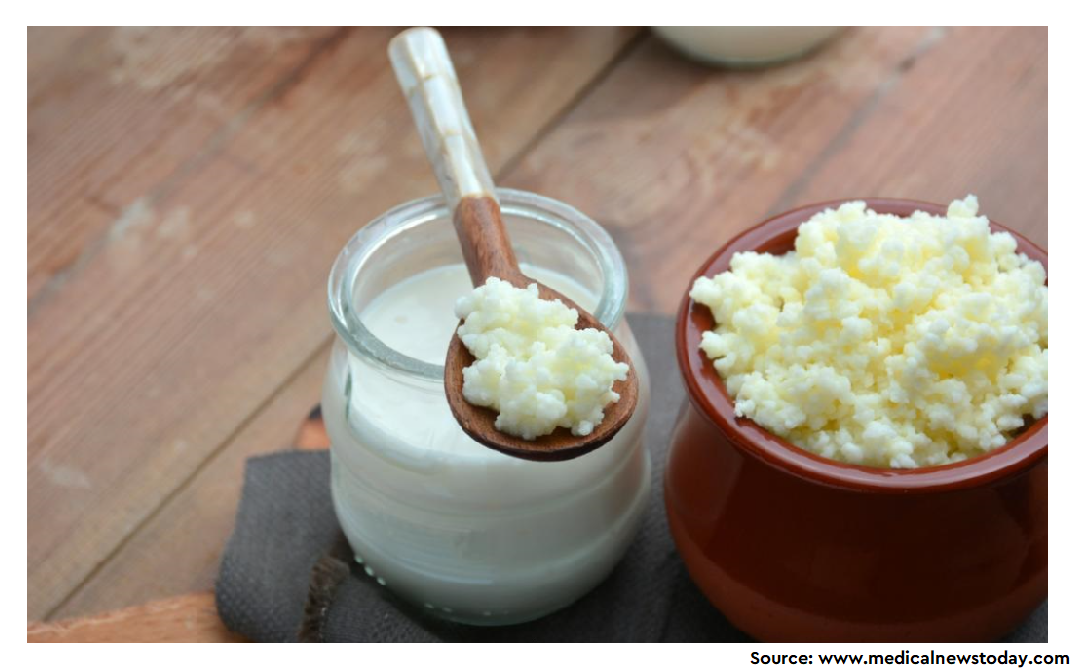Probiotics are live microorganisms that upon consumption offer a plethora of health advantages. Fermented milk products e.g. yogurt, kefir are renowned for their health benefits. However, the mechanism behind their antimicrobial activity is yet elusive.
Identifying the action of probiotics is essential to avail their maximum benefits and use them as therapeutics. A research team led by Kushmaro A., Meijler M., and Jelinek R.( Ben-Gurion University of the Negev, Israel), recently elucidated the mechanism with which ‘kefir’ affects bacterial proliferation. They found that a fungus called Kluyveromycesmarxianus is predominantly present in the probiotic mixture of ‘kefir’. Furthermore, the study also showed that Kluyveromycesmarxianus secrete a bioactive tryptophol acetate which imparts antimicrobial activity to the ‘kefir’. A compound tryptophol acetate is also produced from plants and bacteria, however, this study discovered its new source. Moreover, they also investigated the mechanism of the tryptophol acetate which revealed its action on the quorum sensing (bacterial communication) of the pathogenic bacteria. A compound targeting quorum sensing reduces the pathogenicity of the bacteria. Thus, probiotic secreting tryptophol acetate possesses huge potential to be used as a therapeutic measure. In order to validate the activity, molecular studies were performed which showed inhibition of the quorum sensing associated genes in the Vibrio cholerae (a pathogenic organism causing cholera).
To recapitulate, the aforementioned research has done an excellent contribution to probiotic research and also showed a novel way to tackle antibiotic resistance.
For more information, please visit the website of Microbiome journal through this link.







